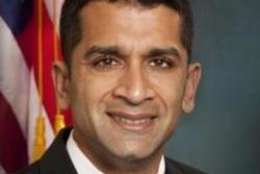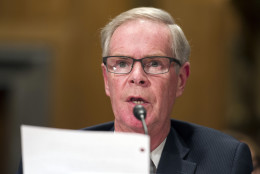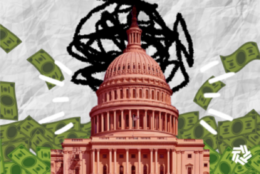Improper payments
-
Lack of updated deceased records at VA shows billions in improper payments to deceased veterans, according to SSA IG
September 01, 2017 -
The EPA's watchdog says it missed the mark on some of the goals of an early retirement and buyout campaign.
August 15, 2017 -
Sens. Jerry Moran (R-Kan.) and Tom Udall (D-N.M.) have filed an amendment to the NDAA bill that is the MGT Act.
August 14, 2017 -
Both the Trump administration and Congress are offering new goals to cut government improper payments over the next five to 10 years. Experts in the field say the targets aren't impossible but need attention and investments in agency technology and personnel.
July 20, 2017 -
A 2018 budget proposal from the House Budget Committee asks federal employees to contribute more toward their retirement as a way to find $203 billion in mandatory spending cuts next year.
July 18, 2017 -
Since 2010, the Improper Payment Elimination Reporting Act has required inspectors general to tell whether their agencies are doing what they're supposed to in order to reduce debt by error. But the Government Accountability Office has found a few flaws in the IG reports. Beryl Davis, director of financial management and assurance at GAO, joined Federal Drive with Tom Temin to elaborate.
June 27, 2017 -
Reducing the improper payment rate and making better IT acquisition decisions are among the Government Accountability Office's top suggestions to find ways to run the government for less. Agencies shoulder much of the work, but Congress also has its role to play.
May 19, 2017 -
In today's Federal Newscast, DoD's inspector general found the department complied with only one of the six requirements of the act by reporting improper payment rates of less than 10 percent.
May 11, 2017 -
Do you know that the U.S. government pays out about $140 billion a year to people who either don't deserve the money, or are dead but still collecting?
May 02, 2017 -
The Government Accountability Office recently hosted a panel discussion to talk about how organizations could foster collaboration to use analytics to tackle improper payments. Federal News Radio's Eric White spoke with Vijay D'Souza, director of GAO's Center for Enhanced Analytics, on Federal Drive with Tom Temin for a recap of the event and some of the topics covered.
April 07, 2017 -
The Labor Department's unemployment insurance program pays out $3.5 billion a year improperly, an error rate of more than 10 percent. Justin Bullock, assistant professor at the Bush School of Government and Public Service at Texas A & M, studied this problem. He shares the results on Federal Drive with Tom Temin.
March 28, 2017 -
David Mader spent the last two years as the controller at the Office of Management and Budget working with the Treasury Department and other agencies to try to get a better handle on why the government spends money that is deemed improper.
February 15, 2017 -
Looking closer at metadata and partnering with state departments of revenue and industry groups, the IRS is reducing risk of tax return identity theft
February 09, 2017 -
Rep. Mick Mulvaney (R-S.C.) offered his first insights into his management ideas during his two-committee marathon nomination hearings to be the next director of the Office of Management and Budget.
January 25, 2017 -
The Government Accountability Office issued its 2016 report on federal financial management and once again can’t offer an opinion because of incomplete data from DoD, HUD and NSF.
January 13, 2017















